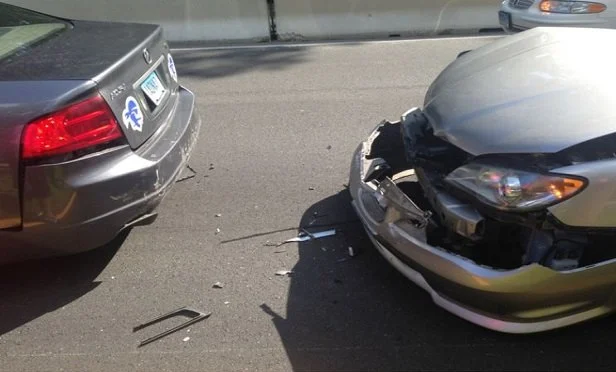More than 2.7 million people in the United States are disabled, injured, or killed in car accidents every year. Knowing the laws that apply in the event of an accident will be highly beneficial if you find yourself in this situation. However difficult it may seem to comprehend the workings of the legal system, learning the foundations of what to do if you are involved in a vehicle accident will be beneficial in the long run if you decide to take legal action.
First and foremost, you should be aware that, following a car accident, you are not necessarily required to go through the legal system to seek compensation. So, what exactly should you do in the event of an accident?
Everything is based on circumstantial evidence; however, there are a few ground rules that we recommend you adhere to.
Before You Start Driving
Before you get into your automobile:
- Take action to reduce your stress if you are involved in an accident.
- Remember to keep a copy of your insurance information with you. You should be aware of its location.
- In addition, carry a pen and paper in your automobile.
Remember to buckle up, as your chances of survival increase if you are correctly restrained during an accident. According to statistics, almost half the people killed in motor vehicle accidents were not securely restrained in their vehicles.
The following are the most prevalent reasons for a traffic collision:
Distracted Driving
When you are driving, any activity that draws your focus away from the road is considered distracted driving. This includes playing with the radio or texting while driving, eating or drinking, speaking with other passengers, etc.
Speeding
Drive too fast increases the danger of a collision. It is more likely that a crash may occur due to excessive speeding because the impact of the collision will be more significant, leading to severe injuries or even death. In the United States, speeding is the second most common cause of accidents.
Aggressive Driving
Aggressive drivers are more prone to speed, merge without signaling, switch lanes irregularly, and engage in other potentially risky driving activities.
DUI
According to statistics, drunk drivers are responsible for 30 percent of all traffic fatalities. Driving after consuming alcohol or taking drugs lowers abilities like reaction time, coordination, comprehension, concentration, and vision.
Fatigue
Driving while fatigued or exhausted is a leading cause of car accidents throughout the United States. Sleepy drivers find it harder to pay attention to the road, leading to decreased reaction times on the road.
Adverse Weather Conditions
Extreme weather conditions impact drivers’ ability to drive safely, as slick roads and low vision are common. Drivers should slow down and maintain a safe gap between themselves and other vehicles when driving on ice, rain, or other weather.
What to Do After the Collision
Regardless of how cautious you are, a traffic collision can happen inevitably. It’s a terrifying event, but there are things you can do to remain calm and attentive while also educating yourself on what to do if you find yourself in a similar circumstance. You may help by taking various steps that will aid in guaranteeing the safety of everyone, complying with the law, and commencing the insurance claim procedure, as detailed below.
Proceed to Safety
People often believe that following an accident, they must come to a complete stop wherever they are, even on a highway. However, your first aim should be to get to a safe location as soon as possible. Locate a safe location close to the accident scene where you can remain safe while assessing the damage and communicating with the other party.
Check for Injuries
Injury checks should be performed on yourself and your passengers. If any injuries are discovered, get medical assistance as soon as possible. If you were part of the collision, it is recommended that you contact a doctor to ensure that you do not have any hidden injuries—even if you appear to be fine immediately following the accident.
Call the Police
Regardless of the accident’s severity, calling the police is critical, and in some jurisdictions, it is legally mandated to ensure that everyone is safe. The police will gather information, write a report, and take photographs of the crime site. Your insurance company may ask for a police report to process your claim. If anyone engaged in the incident need emergency medical assistance, ensure to alert the police when you call them.
Exchange Information
Check for injuries before exchanging contact and insurance information. Obtain their full name and contact information, their insurance company’s name and policy number, license plate number, and the collision location. When discussing the facts with the other driver, avoid bringing up the fault subject. After reviewing the facts, your insurance provider will establish who was at fault based on an assessment of the vehicles/property damaged, the information provided by you and the other parties involved, a police report, or photographs taken at the site.
Be cautious about what you say during the conversation. If you admit fault or express regret, those statements may be used against you in the future.
Collect Relevant Information
It is critical to document any injuries sustained due to your automobile accident. Document the accident as thoroughly as possible by photographing both vehicles from various angles and displaying the damage. Make a point of obtaining a copy of the accident report from the police officer who conducted the investigation. Photos and a copy of the police report will be required to be submitted to your insurer throughout the claims processing procedure to back your claim.
Seek Legal Guidance Immediately
After being engaged in a traffic collision caused by another’s negligence or carelessness, you should not be held accountable for the resulting financial losses, many of which can be substantial. Seeking guidance from a Grayson car accident lawyer will help you ensure that you receive all of the compensation you deserve. This covers both economic and non-economic damages.
Notify Your Insurer
It is essential to call your insurance company and inform them of what has occurred to begin the claims procedure. In addition, they will be able to inform you precisely what they will require to process your claim and what to expect throughout the claims processing method itself.



